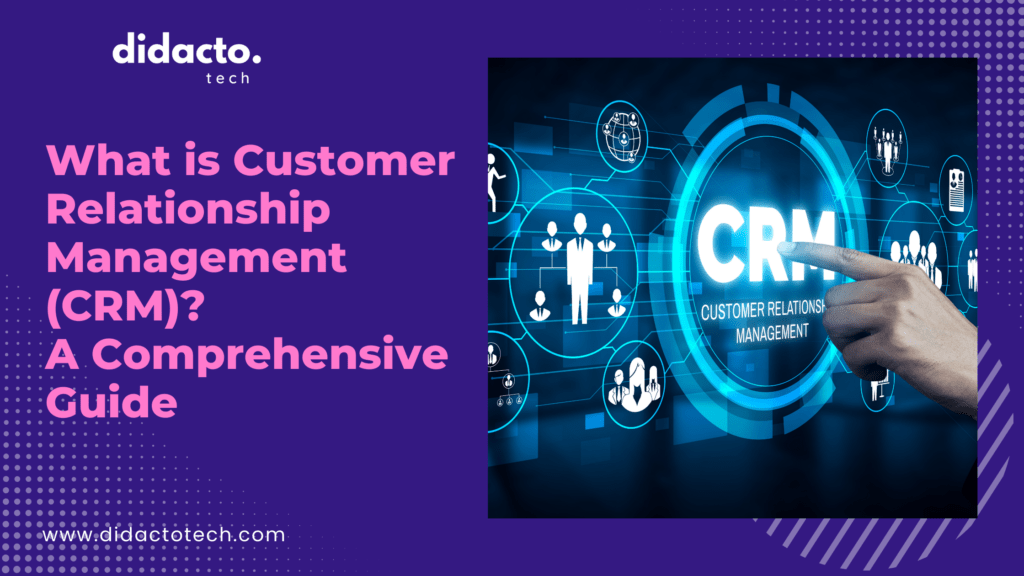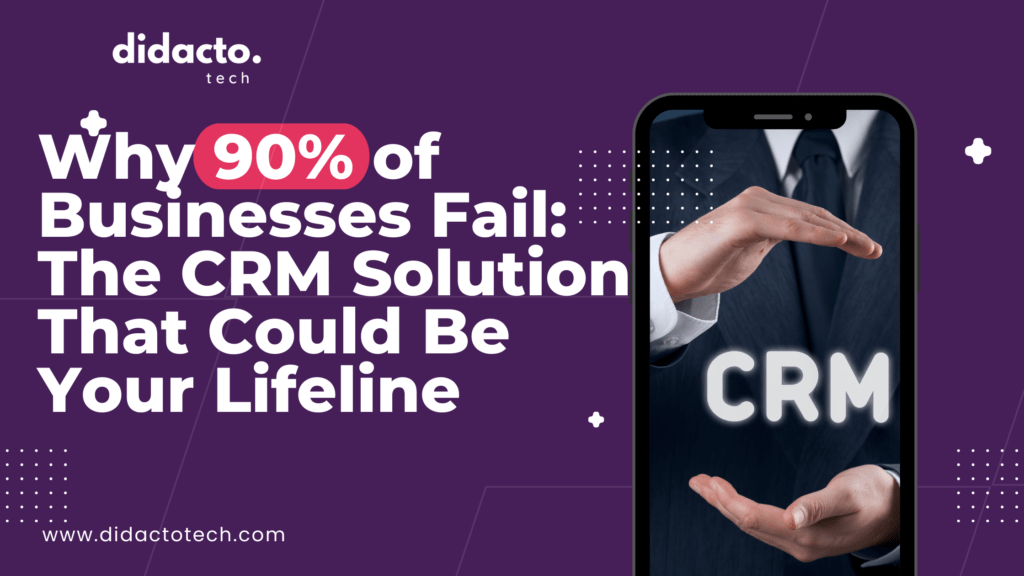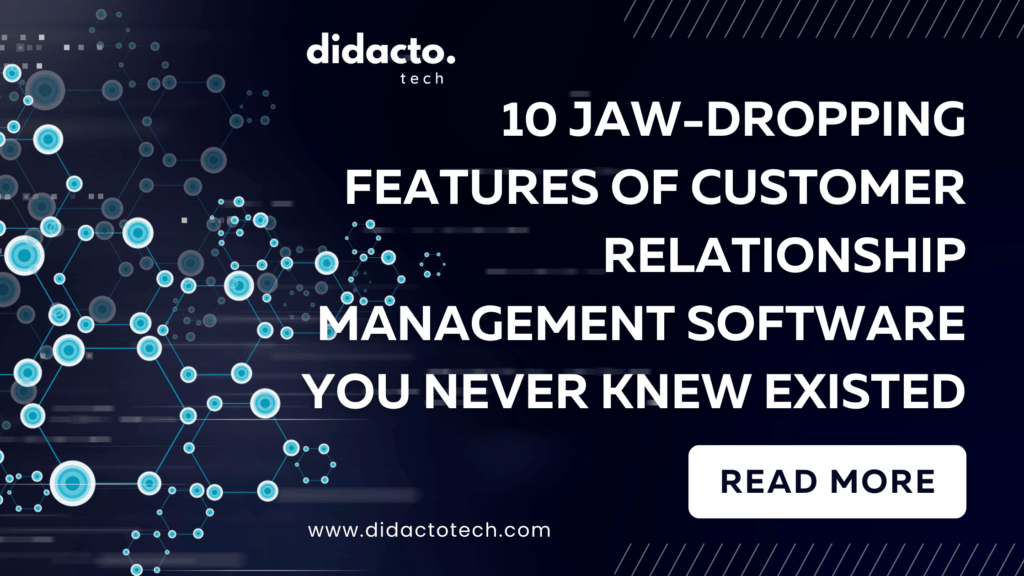Table of Contents
Introduction
In today’s competitive business landscape, understanding and managing customer relationships is crucial for success. This is where Customer Relationship Management (CRM) comes into play. But what exactly is CRM, and why is it so important for businesses of all sizes? In this comprehensive guide, we’ll explore the ins and outs of CRM, its benefits, and how it can transform your business operations.
Defining Customer Relationship Management
Customer Relationship Management (CRM) is a strategy and set of tools that businesses use to manage and analyze customer interactions and data throughout the customer lifecycle. The goal of CRM is to improve business relationships with customers, assist in customer retention, and drive sales growth.
At its core, CRM is about:
- Organizing and managing customer information
- Tracking customer interactions
- Analyzing customer behavior and preferences
- Streamlining communication and sales processes
CRM systems help companies stay connected to customers, streamline processes, and improve profitability.
Key Components of CRM
A comprehensive CRM system typically includes the following components:
- Contact Management: Stores customer and prospect contact information, communication history, and preferences.
- Sales Management: Tracks leads, opportunities, and sales pipeline, helping sales teams manage their activities and forecast revenue.
- Marketing Automation: Manages marketing campaigns, email marketing, and customer segmentation.
- Customer Service and Support: Manages customer inquiries, support tickets, and service levels.
- Analytics and Reporting: Provides insights into customer behavior, sales performance, and business metrics.
- Workflow Automation: Automates repetitive tasks and business processes to improve efficiency.
- Integration Capabilities: Connects with other business systems like ERP, marketing tools, and social media platforms.
Benefits of Implementing CRM
Implementing a CRM system can bring numerous benefits to your business:
- Improved Customer Relationships: By centralizing customer data and interactions, businesses can provide more personalized and consistent customer experiences.
- Increased Sales: CRM helps sales teams identify and nurture leads more effectively, leading to higher conversion rates and revenue.
- Enhanced Customer Retention: By understanding customer needs and preferences, businesses can improve satisfaction and loyalty.
- Better Decision Making: CRM analytics provide valuable insights that can inform business strategies and decisions.
- Improved Efficiency: Automation of routine tasks and streamlined processes save time and reduce errors.
- Better Collaboration: CRM systems facilitate information sharing across departments, improving teamwork and coordination.
- Data-Driven Marketing: CRM data helps create more targeted and effective marketing campaigns.
Types of CRM Systems
There are three main types of CRM systems:
- Operational CRM: Focuses on automating and improving customer-facing business processes, including sales, marketing, and customer service.
- Analytical CRM: Emphasizes the analysis of customer data to gain insights and inform business decisions.
- Collaborative CRM: Facilitates communication and collaboration between different departments within an organization to improve customer service.
Each type of CRM serves different purposes and can be used individually or in combination, depending on the business needs.
How CRM Works
CRM systems work by collecting and organizing customer data from various touchpoints, including:
- Website interactions
- Social media engagement
- Email communications
- Phone calls
- Live chat sessions
- Sales interactions
This data is then processed and analyzed to provide insights into customer behavior, preferences, and needs. The CRM system uses this information to:
- Create detailed customer profiles
- Track the sales pipeline
- Automate marketing campaigns
- Manage customer support tickets
- Generate reports and analytics
By centralizing this information, CRM enables businesses to provide a seamless and personalized customer experience across all touchpoints.
Choosing the Right CRM for Your Business
Selecting the right CRM system is crucial for successful implementation. Here are some factors to consider:
- Business Needs: Identify your specific requirements and goals for implementing a CRM system.
- Scalability: Choose a system that can grow with your business.
- User-Friendliness: Ensure the system is easy to use and adopt for your team.
- Integration Capabilities: Look for a CRM that can integrate with your existing tools and systems.
- Customization Options: Consider whether you need a highly customizable solution or if an out-of-the-box system will suffice.
- Mobile Access: In today’s mobile world, having a CRM with mobile capabilities is essential.
- Cost: Consider both upfront and ongoing costs, including implementation, training, and maintenance.
- Support and Training: Evaluate the vendor’s support options and training resources.
Some popular CRM solutions include:
Implementing CRM Successfully
Successful CRM implementation requires careful planning and execution. Here are some key steps:
- Define Clear Objectives: Establish specific goals for your CRM implementation.
- Get Buy-In: Ensure leadership and end-users understand the benefits and are committed to the change.
- Clean and Migrate Data: Prepare your existing data for migration to the new system.
- Customize and Configure: Set up the CRM to align with your business processes.
- Provide Training: Offer comprehensive training to all users to ensure adoption.
- Start Small: Consider a phased rollout, starting with a pilot group before full implementation.
- Monitor and Adjust: Continuously evaluate the system’s performance and make necessary adjustments.
- Encourage Feedback: Regularly solicit feedback from users to identify areas for improvement.
Common Challenges and Solutions
While CRM can bring significant benefits, businesses may face some challenges during implementation and use:
- Low User Adoption:
- Solution: Provide thorough training and highlight the benefits for individual users.
- Poor Data Quality:
- Solution: Implement data cleansing processes and establish data entry standards.
- Integration Issues:
- Solution: Carefully plan integrations and work with experienced integration specialists.
- Overcomplication:
- Solution: Start with essential features and gradually add complexity as needed.
- Lack of Strategy:
- Solution: Develop a clear CRM strategy aligned with business goals before implementation.
Future Trends in CRM
The CRM landscape is continually evolving. Here are some trends shaping the future of CRM:
- AI and Machine Learning: Predictive analytics and AI-powered insights will become more prevalent.
- Voice and Conversational Interfaces: Integration with voice assistants and chatbots will enhance user experience.
- IoT Integration: CRM systems will increasingly incorporate data from IoT devices for more comprehensive customer insights.
- Social CRM: Deeper integration with social media platforms will provide a more holistic view of customer interactions.
- Customer Data Platforms (CDPs): CDPs will work alongside CRM systems to provide a unified view of customer data across all touchpoints.
- Blockchain for Data Security: Blockchain technology may be used to enhance data security and transparency in CRM systems.
Conclusion
Customer Relationship Management is more than just a technology – it’s a strategy that can transform how businesses interact with their customers. By centralizing customer data, automating processes, and providing valuable insights, CRM systems enable businesses to build stronger relationships, increase sales, and improve overall efficiency.
As you consider implementing or upgrading your CRM system, remember that success lies not just in the technology itself, but in how well it aligns with your business processes and goals. With careful planning, proper implementation, and ongoing optimization, CRM can become a powerful tool for driving your business forward.
Are you ready to take your customer relationships to the next level? Consider exploring CRM options that fit your business needs and start your journey towards more effective customer relationship management today.



